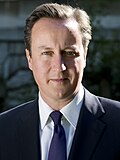| |||||||||||||||||||||||||||||||||||||||||||||||||||||||||||||||||||||||
All 59 Scottish seats to the House of Commons | |||||||||||||||||||||||||||||||||||||||||||||||||||||||||||||||||||||||
|---|---|---|---|---|---|---|---|---|---|---|---|---|---|---|---|---|---|---|---|---|---|---|---|---|---|---|---|---|---|---|---|---|---|---|---|---|---|---|---|---|---|---|---|---|---|---|---|---|---|---|---|---|---|---|---|---|---|---|---|---|---|---|---|---|---|---|---|---|---|---|---|
| Turnout | 71.1% ( | ||||||||||||||||||||||||||||||||||||||||||||||||||||||||||||||||||||||
| |||||||||||||||||||||||||||||||||||||||||||||||||||||||||||||||||||||||
 Coloured according to the winning party's vote share in each constituency | |||||||||||||||||||||||||||||||||||||||||||||||||||||||||||||||||||||||
A general election was held in the United Kingdom on 7 May 2015 and all 59 seats in Scotland were contested under the first-past-the-post, single-member district electoral system. Unlike the 2010 general election, where no seats changed party, the Scottish National Party (SNP) won all but three seats in Scotland, gaining a total of 56 seats.[1][2] The SNP received what remains the largest number of votes gained by a single political party in a United Kingdom general election in Scotland in British history, breaking the previous record set by the Labour Party in 1964 and taking the largest share of the Scottish vote in sixty years, at approximately 50 per cent.[3]
The Labour Party suffered its worst ever election defeat in Scotland, losing 40 of the 41 seats it was defending, including the seats of Scottish Labour leader Jim Murphy and the then Shadow Foreign Secretary Douglas Alexander. The Liberal Democrats lost ten of the eleven seats they were defending, with the then Chief Secretary to the Treasury Danny Alexander and former leader Charles Kennedy losing their seats. The election also saw the worst performance by the Scottish Conservative Party, which received its lowest share of the vote since its creation in 1965, although it retained the one seat that it previously held.[4] In all, 50 of the 59 seats changed party, 49 of them being won by first-time MPs.
The general election in Scotland was fought in the aftermath of the 2014 Scottish independence referendum, in which 1,617,989 voters (44.7%) backed independence while 2,001,926 (55.3%) did not. The referendum saw a record turnout of 84.59%, the "highest turnout in any nationwide ballot in Scotland since the advent of the mass franchise after the First World War". There was speculation as to whether this would significantly affect the turnout in the general election.[5][6] An immediate consequence of the referendum was a massive rise in the membership of the pro-independence parties, with the SNP in particular adding 60,000 to its membership to reach over 85,000 within two months of the referendum.[7]
- ^ "Election 2015: SNP wins 56 of 59 seats in Scots landslide". BBC News. 8 May 2015. Retrieved 23 April 2018.
- ^ Settle, Michael (8 May 2015). "SNP crush Labour in historic poll as Tories sweep to power". The Herald. Retrieved 18 May 2015.
- ^ "Election Statistics: UK 1918–2017". House of Commons Library. 23 April 2017. p. 12. Archived from the original on 14 August 2017. Retrieved 14 August 2017.
- ^ Hutcheon, Paul (10 May 2015). "Scottish Tories: worst vote share in its history". Sunday Herald. Retrieved 18 May 2015.
- ^ "Will the Scottish Referendum Reignite Britain's Interest in Politics?". 9 October 2014. Retrieved 6 November 2014.
- ^ "Scotland's referendum will boost turnout in the 2015 election". 16 September 2014. Retrieved 6 November 2014.
- ^ "SNP could win majority of Scottish seats, says campaign director Angus Robertson". The Herald. 15 November 2014. Retrieved 15 November 2015.



